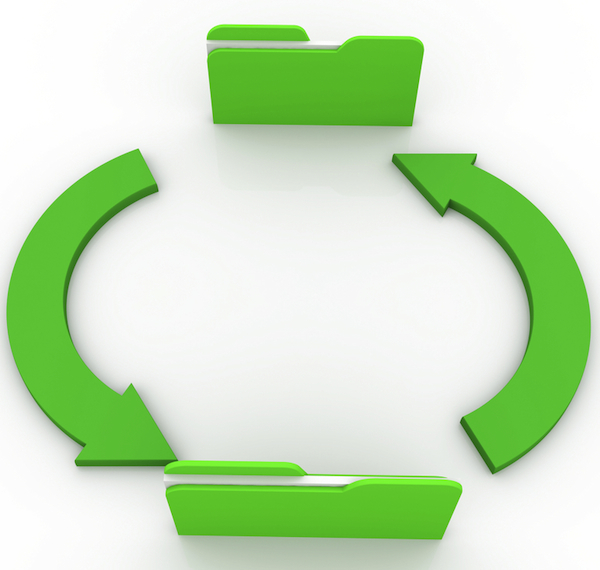
Carbon syncs apps with data among Android devices and backs up straight to the cloud
Usually when users wish to transfer apps with data between Android devices, a fairly cumbersome process is involved. There's an easier way though. Koushik Dutta, the developer behind popular modding tools such as ClockworkMod and ROM Manager, unveiled Carbon, an app that can get the job done by itself after touching a few buttons.
But who actually needs it? While Carbon may present a limited appeal to most Android users, it actually makes sense for those running apps grabbed from third-party sources such as Interweb forums, a common occurrence for modders, beta apps that are unavailable to download from the Play store (a good example is the Dropbox preview build) or for users that simply wish to have the same app data across several devices. Think of game saves and you get the picture.
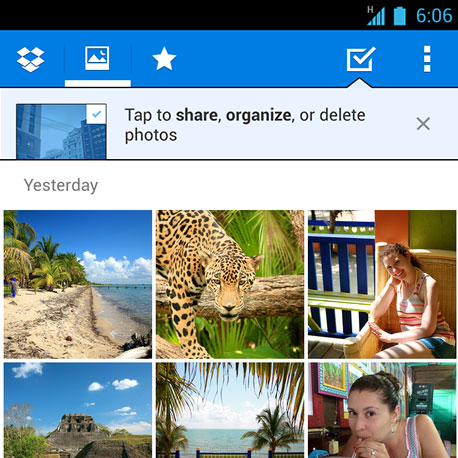
Hold your weekend! Dropbox has an update for your Android
It may be Friday evening and, according to Jimmy Buffett it is always five o'clock somewhere, but Dropbox has not finished its work week, pushing out one final update. So put away the beer or wine and pick up your Android. Late today the company announced an update that "makes it super easy to share collections of photos with friends and family".
Dropbox has been busy lately, given the stiff competition the cloud service is suddenly receiving from all sides -- Box, SkyDrive, Google Drive, Amazon Cloud Drive and others. This update is all about photo sharing. From the Photos section, users can now tap a button and choose the pictures they wish to share with friends and family. You can add them to a shared album or even do it via an emailed link. In fact, you can even utilize Facebook or Twitter for the process.

Microsoft announces Windows Azure SDK for .NET updates
On Tuesday, even with all the CES 2013 madness, Microsoft introduced a host of new features addressed to the company's Windows Azure SDK for .NET. The latest version of the software development kit focuses on expanding support in roles, increasing productivity, making new tools available and delivering new and updated libraries.
The revised Windows Azure SDK for .NET allows users to run cloud service applications in Windows Server 2012, and provides access to more features in IIS 8 (Internet Information Services) and .NET 4.5 when the server operating system is selected. The updated software development kit also introduces support for Visual Studio tools, delivering improved tooling for Cache and Server Explorer for Storage and Service Bus, diminished context switching to portal as well as support for up to 25 management certificates per subscription.

Microsoft replaces aging Messenger with Skype in March
For those of you still using Microsoft's long-standing Instant Messaging service, bad news is on the horizon. The Redmond, Wash.-based software giant revealed in early November last year, that it was planning to retire the aging Messenger and replace it with Skype "in the first quarter of 2013". Well, Microsoft is not backing down and just added the precise expiration date -- March 15.
Microsoft sent an email detailing the process to what is most likely a considerable number of current as well as former Messenger users. I upgraded my Hotmail account to Outlook in August last year, and have not used the service in ages, yet Microsoft sent me one anyway probably emphasizing, "Hey, don't you think of using it anytime soon". There is some good news for Chinese users though -- Messenger will continue to be available in mainland China, likely due to high local demand.
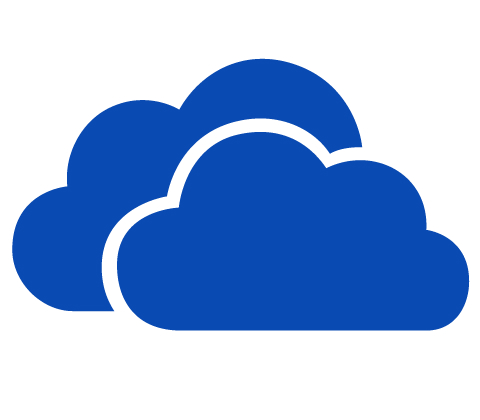
Microsoft brings HTML5, better sharing to SkyDrive
Just because Microsoft is not in Las Vegas -- other than a cameo appearance by CEO Steve Ballmer last night...oh, and all of its software, which is powering many of the gadgets you see at the Consumer Electronics Show -- the company is not standing still, today announcing updates to cloud storage service SkyDrive.
That is important because all of those Windows 8 computers and tablets, and even the Windows Phone 8 devices that are being displayed in Sin City can utilize SkyDrive for storage. In fact, the upcoming Office 2013 will do so as well. That means the company's cloud needs features to get customers interested.

Back up unlimited devices anytime, anywhere with Carbonite Business
The popularity of the Bring Your Own Device (BYOD) model has raised a lot of questions about security and the cloud, and firms embracing the trend also have to worry about what might happen to important data if a laptop, tablet, or smartphone gets stolen, lost, or broken while an employee is away from work.
It doesn’t matter how careful people are, accidents will always happen. According to a recent study by SquareTrade, over 30 percent of iPhones have been damaged in some way. Deaths by misadventure include being dropped in the toilet (9 percent), put in the washing machine (5 percent), and being left on the roof of a car prior to the driver making a quick getaway (6 percent). In the case of BYOD hardware, the loss of data is usually more worrying that the loss or destruction of the device itself.
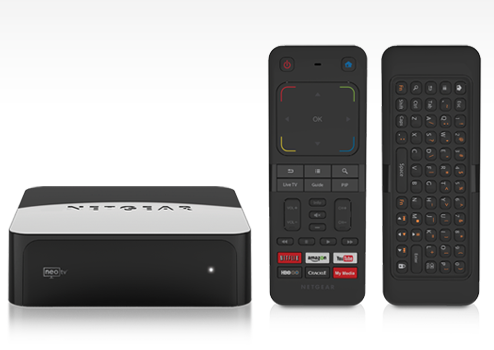
Netgear finally concedes, joins the Google TV generation
Netgear read my mind. Hopefully not all of it, but the company is welcome to my tech thoughts at least. Just recently several of us here at BetaNews wrote about the tech we used most in 2012. In my column I mentioned that my trusty HTPC grows long in the tooth -- you think dog years are rough, try computer years. I started using a Netgear NeoTV instead. As I mentioned then, and will reiterate now, the interface is not flashy, but it works seamlessly. the hardware is robust as well.
In the end though, I admitted my plans in 2013 were to move to Google TV because of the added features -- web browser, apps, you know the routine.
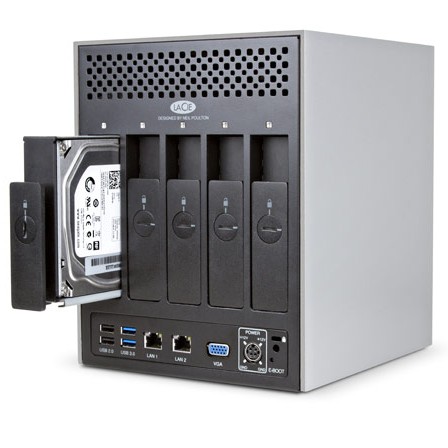
LaCie shows small business some CES love with 5big NAS Pro
While the Consumer Electronics Show is mostly about gadgets for your home, there's more to it. Unfortunately, devices that are more functional, as opposed to flashy, tend to fly beneath the radar. That means that good, useful equipment, that we will actually see on the market before CES 2014, does not get the attention it deserves.
That is the case with a new LaCie network attached storage device designed for small businesses. The company today announced its 5big NAS Pro, a device that brings some new functionality to the product line. According to LaCie, the new NAS will have what it describes as "True Hybrid Cloud". This will use the company's own cloud storage, Wuala, and display both network and cloud storage in one view. This means one interface for both users and administrators, which is especially important on mobile.

5 things I want to see at CES 2013
Tomorrow, the Consumer Electronics Show officially kicks off, not that many vendors are waiting. There already are plenty of Day 0 and -1 announcements, which make me wonder if this -- the first of two posts -- isn't already late: What I would like and not want to see during this year's big event. If early press galas are any indication, many CES participants won't hit the jackpot in Las Vegas this year. Sadly that's a trend.
Like 2012, I'm sitting out the tradeshow. The real benefit is mingling, and that's for everyone -- from journalists to manufacturers to distributors. CES really isn't about gadget geeks but everyday consumers and CE manufacturers getting goods to them. Why else would LG's press gala feature 39 new driers and 72 refrigerators coming this year? But the big noise is all about the toys today, as it will be all week.
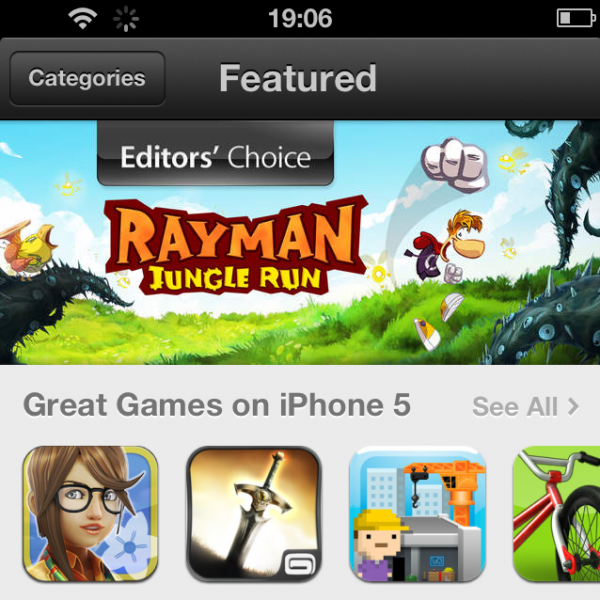
App Store's 40 billion downloads doesn't take much away from CES
It's tradition. Consumer Electronics Show descends on Las Vegas. Apple doesn't attend but does something to steal some thunder. So it's no surprise that this morning the Cupertino, Calif.-based company announced 40 billion App Store downloads -- half in 2012 and 2 billion in December. That's surely impressive, but nowhere as near thunder stealing as some past years. C`mon, where are those strategically placed rumors that turn attention away from the big event?
In 2011: Mac App Store. Twice. A year earlier: iPad and in 2011, too. Who can forget iPhone in 2007, which literally stole the show. The trend is so assured, last year I asked (and answered): "Are this year's CES attendees afraid of Apple?" So far, in 2013, they have nothing to fear.
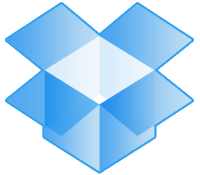
Dropbox comes to Windows Store, but don't get your hopes up
Little more than two months after Windows 8's release, popular cloud storage service Dropbox finally offers an app through the Windows Store. However, unlike Box and SkyDrive, which both deliver a fairly competent feature set, the Dropbox app for Windows 8/RT is a half-baked affair, leaving much to be desired.
Even at first glance, the Dropbox app touts a modest feature set with no advanced functionality to speak of. It allows users to browse and preview uploaded files, edit, open and save items from "other Windows 8 apps", and share and find files using the Search Charm. Users cannot edit uploaded Dropbox files using the app, only open items, making it a glorified file browser with a few extra features. Furthermore Dropbox for Windows 8 appears to be rather unstable.

I hate CES, and you should too
Consumer Electronics Show 2013 commences in about 24 hours with the pre-show keynote. I won't be there, and wonder why you will be. Apple is right to be a perennial no show, and Microsoft demonstrated wisdom pulling out -- and this year giving up the coveted kick-off presentation. Tradeshows like this are dinosaurs. Where's the meteor -- the oh-so needed extinction-level event? To everyone inviting me to their CES booths and parties, perhaps now you understand why I didn't respond to your email.
I hate the Consumer Electronics Show and the tsunami of products crashing down in mass self-mutilation and destruction. Who needs them anyway? Will your life really be better because a new cell phone's screen is 0.1 inch larger? Or there's a new Google TV box just like the others, only from a different manufacturer? NPD says not. The analyst firm released data today that tickles my CES-loathing soul: According to surveys, 68 percent of US consumers are happy with the tech they've got. What they do care about: Tech that meets their, ah, digital lifestyle.

UC4: Web outages, like Amazon’s recent issues, can be predicted and avoided [Q&A]
Problems at Amazon Web Services (AWS) caused a major Netflix service failure on Christmas Eve that affected a large portion of US and Canadian subscribers. "Terrible timing" Netflix tweeted as the scale of the problem became apparent. The outage in this case, Amazon said afterwards, was caused by human error -- a developer accidentally deleted some Elastic Load Balancer (ELB) data.
This wasn’t the first high-profile web outage, and it certainly won’t be the last either, but as Randy Clark, UC4 Chief Marketing Officer explains, solutions like DevOps, WebOps and ITPA can all help to limit the problem.
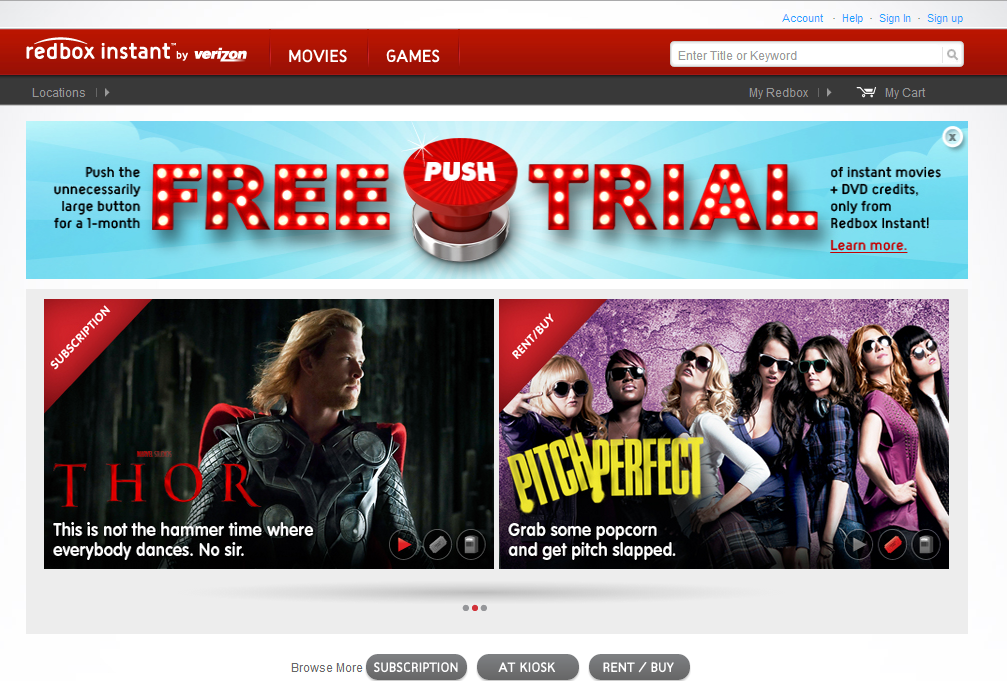
First look: Redbox Instant by Verizon
Are you looking for competition to Netflix and Amazon Prime? By now you have likely heard that Redbox has teamed with Verizon to provide just that. The kiosks, which can be found almost everywhere these days, are quite popular with a number of people, but running out to a store, especially in bad weather, is not overly user-friendly. When the snow is flying, it is so much nicer to get the movie you want without leaving your couch.
Redbox has been testing its new Instant service in private beta for a couple of months now. If you want to try and get into the program then head over to Redbox Instant and request a code, but be aware that the wait can be long. In fact, with the service expected in early 2013 you may just be better holding off.

Microsoft's Office 365 cloud rises over the Windy City
Despite recent stories of Google's big plans to take Microsoft's IT business away, the race is far from over. Today Microsoft announced a fairly big win for Office 365 and, no doubt, privately high-fived over this perceived slap in its rival's face. While Google Apps continues to progress, the city of Chicago prefers to stick with the old guard and its new cloud solution.
Michael Donlan, the Vice President of U.S. State and Local Government at Microsoft, announced today, along with Chicago mayor Rahm Emanuel, that the two sides have reached an agreement that will allow the city to "consolidate its three disparate email systems into one Microsoft Office 365 environment in an effort to improve collaboration, enhance security, and provide both mobile and desktop access for anytime, anywhere productivity".
